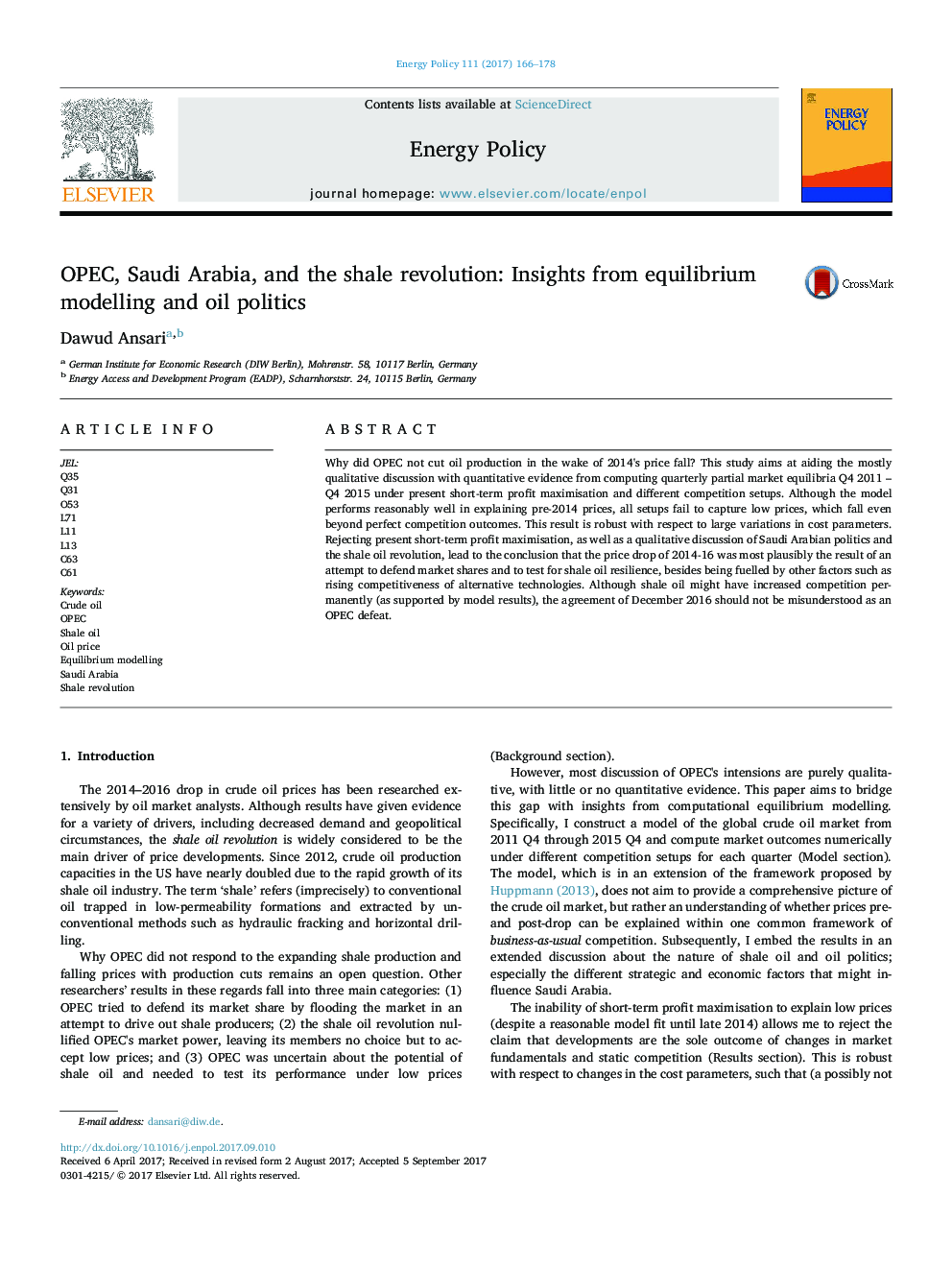| Article ID | Journal | Published Year | Pages | File Type |
|---|---|---|---|---|
| 5105481 | Energy Policy | 2017 | 13 Pages |
Abstract
Why did OPEC not cut oil production in the wake of 2014's price fall? This study aims at aiding the mostly qualitative discussion with quantitative evidence from computing quarterly partial market equilibria Q4 2011 - Q4 2015 under present short-term profit maximisation and different competition setups. Although the model performs reasonably well in explaining pre-2014 prices, all setups fail to capture low prices, which fall even beyond perfect competition outcomes. This result is robust with respect to large variations in cost parameters. Rejecting present short-term profit maximisation, as well as a qualitative discussion of Saudi Arabian politics and the shale oil revolution, lead to the conclusion that the price drop of 2014-16 was most plausibly the result of an attempt to defend market shares and to test for shale oil resilience, besides being fuelled by other factors such as rising competitiveness of alternative technologies. Although shale oil might have increased competition permanently (as supported by model results), the agreement of December 2016 should not be misunderstood as an OPEC defeat.
Keywords
Related Topics
Physical Sciences and Engineering
Energy
Energy Engineering and Power Technology
Authors
Dawud Ansari,
